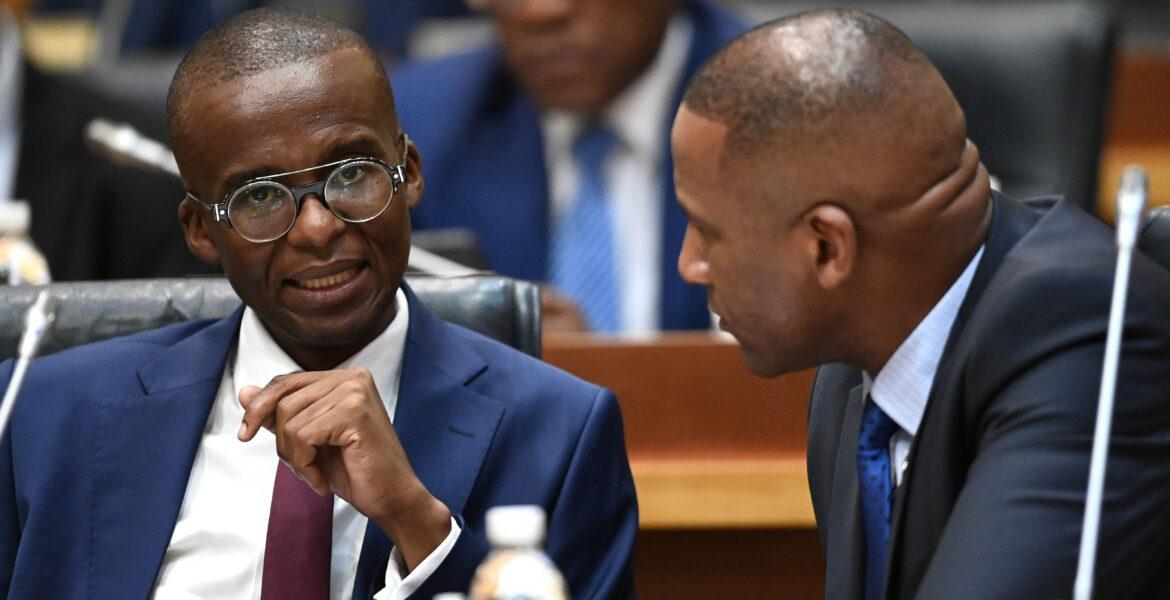Africa-Press – Botswana. Even though recent adjustments made on the Pula exchange rate policy parameters will directly affect everyday essentials such as groceries, fuel and other basic needs, the policy serves as a protective measure and shield against economic collapse.
Presenting a statement in Parliament yesterday on the recent adjustments made on the Pula exchange rate, the Vice President and Minister of Finance, Mr Ndaba Gaolathe said the decision was meant to shield the country from a far more devastating outcome, where the country was not able to pay for imports, afford fuel, food or medicine. He said the decisions made were not popular, but popularity was not the measure of leadership, as responsibility was.
Mr Gaolathe said the key objective of the exchange rate policy was to maintain international competitiveness of domestic producers of goods and services. For that reason, he said the adjustments aimed to preserve foreign exchange reserves and support economic performance and growth. He said the effect was such that, the prices of goods and services produced in Botswana remained comparable to those in external markets and for imports.
He said the objective was achieved through the crawling peg exchange rate framework, which was introduced in 2005. Changes made, the minister noted, became effective on July 11, and were scheduled for review in December, adding that the exchange rate mechanism incorporated three features.
These, he said, were the Pula basket of currencies, which included South African Rand and the International Monetary Fund’s Special Drawing Rights, which was an international reserve asset whose value was based on the US dollar, Euro, Chinese Renminbi, Japanese Yen and British Pound Sterling.
Other two features, he said were the Annual Rate of Crawl, designed to approximate the difference in inflation rates between Botswana and its trading partner countries and margins established around the central bilateral exchange rates at which the Bank of Botswana (BoB) traded foreign currency with commercial banks.
For the exchange rate framework to be successful, he said it relied heavily on the availability of sufficient foreign exchange reserves. Therefore, to facilitate foreign currency transactions, he said BoB needed to, at any point in time, supply the market with foreign currencies at the published rates.
However, while businesses might change prices for various reasons, the Finance minister said the recently announced adjustments to the exchange rate parameters did not justify the notified rates of immediate price increases by some businesses. He further stressed that the adjustments made were part of government’s broader strategy to address structural issues and policy implementation constraints that hindered, among others, productivity.
“As such the success will depend on the complementary government policies and the response of the private sector to truly diversify the economy,” he added.
Mr Gaolathe thanked the Competition and Consumer Authority for swift action in issuing a statement warning businesses against unethical business practices in increasing their product prices under the guise of exchange rate change. He also noted that relevant authorities remained committed to ensuring price stability, protecting consumers and maintaining orderly market conditions for the benefit of all Batswana.
Furthermore, the minister assured the nation that the policy adjustments were proactive, short-term measures designed to avert a far more severe economic crisis that could result from an unchecked decline in foreign exchange reserves.
“By acting decisively now, Botswana is better positioned to maintain currency stability, preserve jobs, secure access to essential imports and support broader economic recovery. The review of the exchange rate framework is a continuous process, including potentially transitioning to a more sustainable framework should the need arise,” he said.
For More News And Analysis About Botswana Follow Africa-Press






